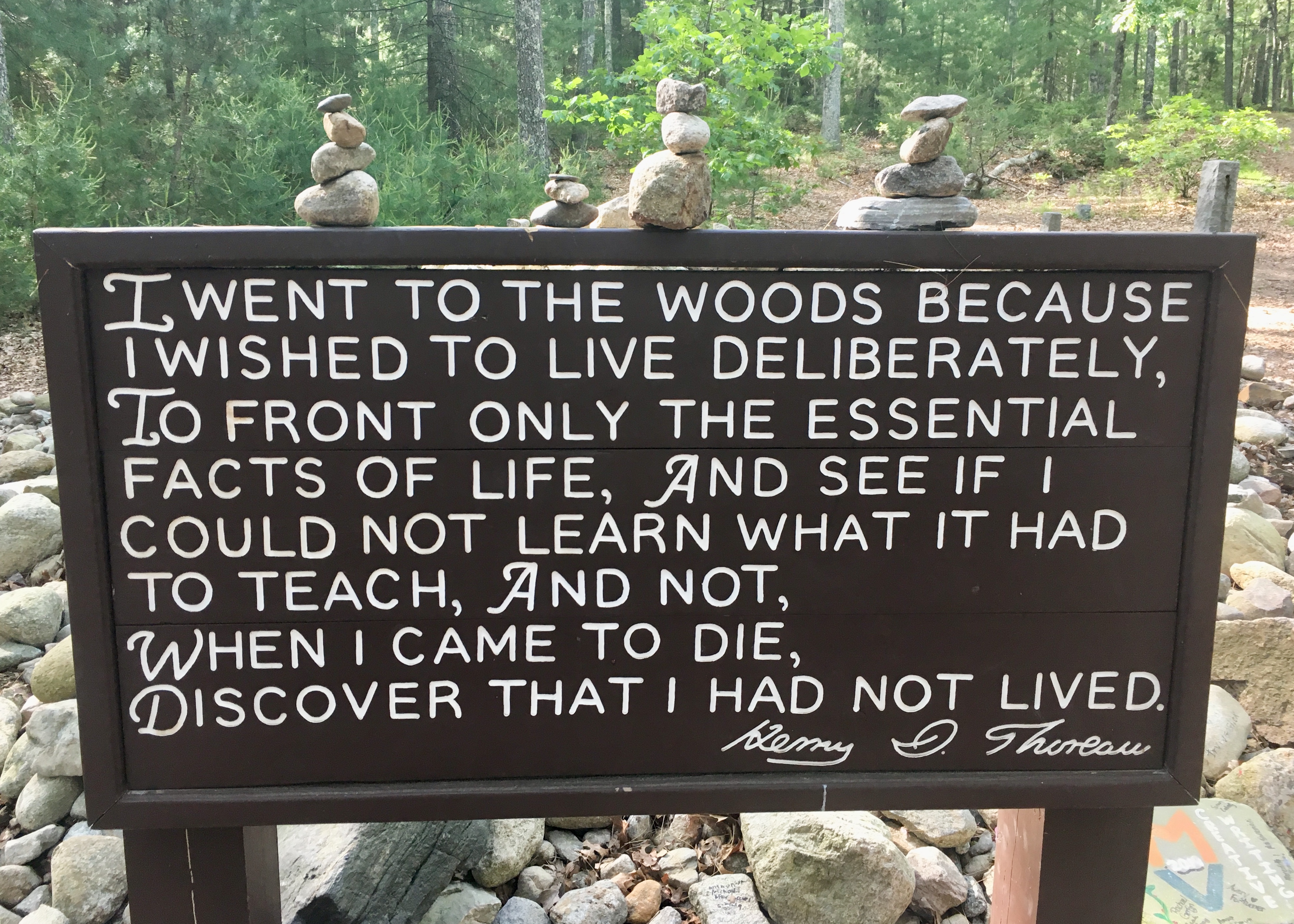
This year I read a fabulous biography by Laura Dassow Walls called Henry David Thoreau: A Life. The philosopher, writer, and naturalist packed a lot into his 44 years. What I loved most about the book was how it brought the town of mid-1800’s Concord, Massachusetts to life.
Thoreau (1817-1862) was an active member of this small, thriving community for his entire life. He lived in his cabin at Walden Pond for just over two years and for most of the rest of his time he lived in the family home. Concord was a progressive, literary community which gave rise to many famous authors, including Ralph Waldo Emerson, Louisa May Alcott, and Nathaniel Hawthorne. All are buried at Author’s Ridge in the Sleepy Hollow Cemetery in Concord. Emerson was a little older than Thoreau and they were like family (with all of the ups and downs that can bring). Many in the community worked to abolish slavery.
As a young man just out of Harvard, Thoreau saw the way people worked long and hard all of their lives just to survive. He wondered if there was another way. And this is why he decided to experiment in living a simple life of observation at Walden Pond. Of course, we all know of the classic book, Walden, that came from that experiment.
Most of the luxuries and many of the so-called comforts of life are not only not indispensable, but positive hindrances to the elevation of mankind.

Last week, I visited Concord on my way to Maine. I walked the trail along Walden Pond to get to the site of Thoreau’s cabin (shown above) and hiked the Wood’s Path back. I drove by the homes of Thoreau, Emerson, Hawthorne, and Alcott and visited their gravesites. The small, quaint downtown streets of Concord reminded me of the place where I live. What a rich history!
The life which men praise and regard as successful is but one kind. Why should we exaggerate any one kind at the expense of others?



For the rest of his short life (he died in 1862 of complications from tuberculosis), Thoreau thought and wrote, making just enough money to live by doing surveying work. Although Walden was well received, Thoreau was not famous during his lifetime. His fame only grew after his death. While his views were often considered controversial, that didn’t stop him from sharing them. In 1859, Thoreau became dismayed by the pace of change. People were clearcutting the forests and the invention of the telegraph brought global communications.
Thoreau was a haunted man. He and everyone he knew were all implicated: the evil of slavery, the damnation of the Indian, the global traffic in animal parts, the debasement of nature, the enclosure of the ancient commons – the threads of the modern global economy were spinning him and everyone around him into a dehumanizing web of destruction. (1859)
What Thoreau’s life says to me is that every place and time has its own issues, events, and circumstances that must be dealt with. What determines its legacy is how the people of that time and place rise to the challenges. These are people that live deliberately, as inhabitants.
It always surprises me when I realize that those, like Thoreau, dealt with many of the same problems that we do. It seems we have yet to learn how to correct these problems and live a fuller life. We only seem to be getting worse!
I don’t know if we’re getting worse but I would aspire to be like Thoreau by being a good inhabitant and speaking out when necessary. Thanks for reading, Cathy.
“Live for the experience.” You, and the information you share, are very inspiring. I feel I would have loved being part of that community; challenging as it may have been. All of those wonderful authors, friends and contributors, all together in one place, at one time. Together for eternity, in Sleepy Hollow. I, too, marvel at how long it’s taking to live with our environment rather than at its expense. Thank you for bringing significance as you live deliberately.